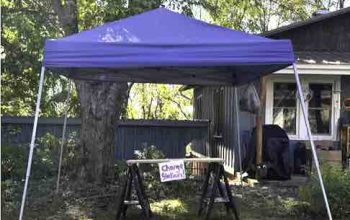Over 14,000 people have signed a petition against large solar farms in their area following plans for a development covering 2,000 acres (810 hectares) in Wiltshire.
Lime Down Solar Park is designed to create 500MW of clean energy – said to be enough to power 115,000 homes – from six sites in villages in the county.
Developer Island Green Power says it will give a “net gain in biodiversity”. But locals say it will simply take away land that could be used for food growing, and provide no direct benefit to the local community.
The sites would be connected into the National Grid’s substation in Melksham, the proposals say.
The finance behind Lime Down is being provided by Macquarie Bank, an Australian company dubbed the Vampire Kangaroo — an Antipodean adaptation of the ‘vampire squid’ label applied to Goldman Sachs for the way it sucked up money — so most of the income may end up overseas.
The company has been widely accused of piling up debt at Thames Water, which it owned from 2006 to 2017, contributing to the problems at the water company.
With so many question marks over the environmental credentials of solar parks, it should be a cause for deep concern that Macquarie is involved .
The local MP, James Gray, who is against the scheme, blames ‘Wall Street hooligans’ for inflicting the Lime Down plan on his constituency and believes a British company would deal with the local community more sensitively.
He says this is not a party political issue as all the mainstream parties are fully behind Net Zero, as he is. He argues a Starmer-led government would be even more determined to push through Net Zero policies.
As locals see it, the whole political class appears to be ranged against the rural community of North Wiltshire, and their votes have nowhere to go on this issue except to fringe parties who have no hope of forming a government. So there is little political pressure on the Secretary of State to turn it down.
Many local residents are furious that big, titled landowners have been secretly in negotiation with Island Green and there are accusations of greed. On several estates, the land being offered for solar development has recently been taken back from tenant farmers. The rent being offered is a closely guarded secret, but sums in excess of £1,000 per acre per year are routinely advertised by renewables companies on the internet, perhaps five times the return that might be expected from farming.
Some farmers have been open in saying that they did not think there was a future in farming any more and this offered a lifeline. Others had been told by the developers that they would be surrounded by the solar complex whether they liked it or not, and had taken the attitude that if they couldn’t beat the development they might as well join it.
Gray, the MP for North Wiltshire, said the plans for Lime Down Solar Park were “scandalous”.
In a blog post written in March, he added: “What is proposed is an absolutely monstrous destruction of some of the most lovely landscapes in North Wiltshire; it will wholly destroy the area’s natural beauty, it will require industrial scale development, and it will make poor little Wiltshire by far the biggest contributor to solar energy in the UK.
“Not only all of that, but especially at a time like this, I am firmly of the view that our highly productive farms should be producing food not sacrificed on the altar of climate change.”
Campaign group Stop Lime Down Solar Park is challenging the developer’s plans.
A spokesperson from the group said: “This is not an anti-solar campaign, we believe that large industrial solar farms should be located on former industrial sites or next to motorways, not on productive farmland.”
‘Clean electricity’
Natasha Worrall, project development manager at Island Green Power, said Lime Down Solar Park would provide “a significant amount of clean electricity for businesses and homes in the region”.
“As well as providing clean electricity which helps us move away from polluting fossil fuels, it is our ambition to design the project in a way that also boosts and enhances local wildlife by delivering a net gain in biodiversity.”
She added: “We are dedicated to responsible land use and believe that the development and delivery of utility-scale farms can co-exist harmoniously with their environment,” she added.
The developer ran a six-week public consultation, which ended on 26 April. But no results had been announced.
Auto Amazon Links: No products found.



